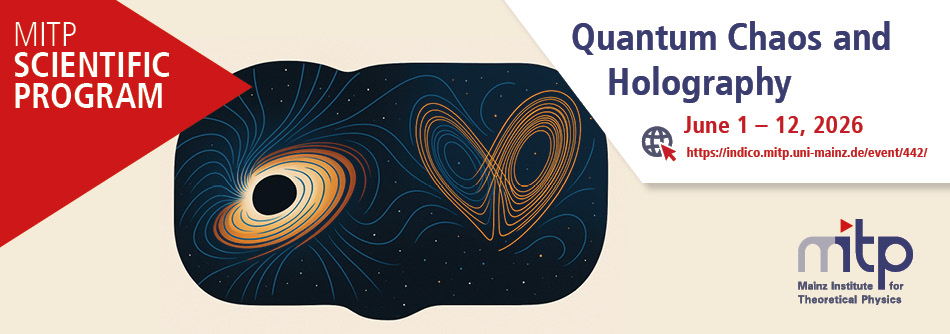Registration closes February 01, 2026 11:59 P.M. CET.
In recent years remarkable interconnections have been found among a number of fields of theoretical physics, based on new relations between quantum gravity and chaotic behaviour. These include quantum gravity, black holes, quantum information, nuclear physics, condensed matter, atomic physics, statistical physics and the study of random Hamiltonians in mathematics. These new interconnections are already influencing how we think and phrase questions about gravity and about related field theories, and about chaotic systems in general.
The goal of the workshop is to further the conversations in new directions. From the gravitational side the focus will be on low dimensional gravity, i.e. two and three dimensional theories. The theories dual to low-dimensional gravity include well-explored models like matrix models, the SYK model and two-dimensional conformal field theories, viewed from the a new angle. The gravitational language is also a motivation to explore new phenomena in chaotic systems, especially in higher dimensional spatially extended systems.
From condensed matter side the focus will be on applications of free probability theory to understanding chaos and thermalization as well as on connections of these two concepts to short and long-time behavior of auto-correlation functions encoded in operator growth/Krylov complexity and quantum information geometry. The workshop is intended to develop a common language and goals between different communities, including coming up with new experimental probes.

